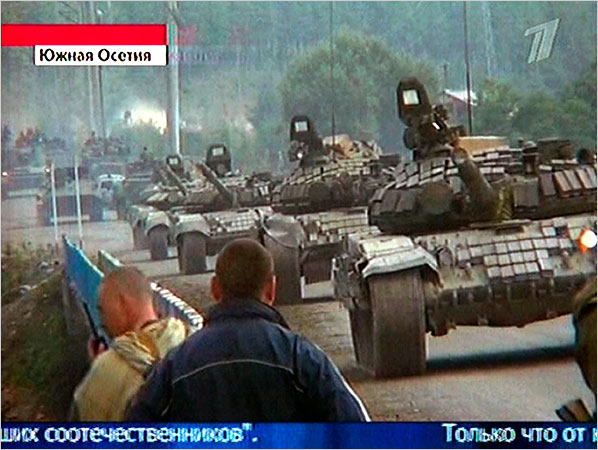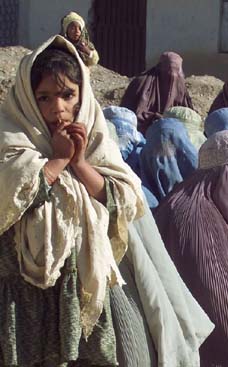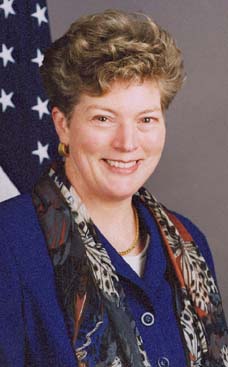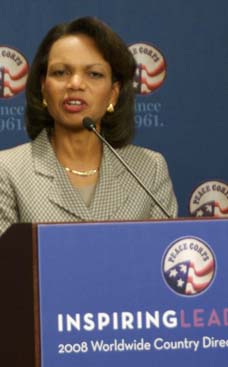
Last April, at the NATO summit in Bucharest, the alliance pointedly refused to put Georgia on a fast track for NATO membership. This was to a significant degree the doing of Germany, which, even under a conservative government, as this crisis reveals, is becoming more a neutral power than a Western nation, with large strategic implications for the U.S. Dependent on Russian natural-gas deliveries, Germany has been reluctant to impose sanctions on Iran, even as it has wanted no part of a serious defense of Georgia. The decision at the NATO summit was a confirmation of this reality in international affairs, in which many European nations are allies of the U.S. only if it never means putting their troops in harm's way. Indeed, German troops are deployed in a peaceful part of Afghanistan, where they are primarily doing the work of relief workers. Vladimir Putin saw through all these pretenses. He saw that the United States, bogged down in Iraq and Afghanistan, and still hoping for Russian support in imposing sanctions on Iran, was all alone and, furthermore, ambivalent in this crisis. He saw that Georgian leader Mikhail Saakashvili, despite his nationalistic bravado, was a weak democratic leader with weak armed forces. And he saw on the map that Georgia was engulfed by Russia, with the West far away. This is not the Balkans, which have the good fortune of bordering Central Europe, and are therefore ultimately prone to robust NATO involvement. This is the Caucasus, whose neighbors are Russia, Iran, the poorest part of Turkey, and the Caspian Sea. Thus, Putin made his move. He liberated, as it were, South Ossetia, a gangster and smuggling state, from the incipient grip of the Georgian military. He did the same in Abkhazia. In the latest news, Russian forces have seized a Georgian base in the western part of the country, and seem intent on establishing a military grip there, an area where the central government in Tbilisi is weakest. By cutting Georgia in half, the Russians can stand astride the Baku-Tbilisi-Ceyhan oil pipeline, so critical to Western energy strategy, giving the Kremlin implicit say on energy deliveries to the Mediterranean and Europe.
Robert Kaplan writes: The truth is, Russia has called the West's bluff on Georgia and won
The Advantage of the First Move
Russian troops have established control over South Ossetia and Abkhazia, two separatist regions of Georgia
The Russian military, having now secured complete control over the autonomous territories of South Ossetia and Abkhazia, appears increasingly engaged in an assault on Georgia proper. Distinguished commentators and Western governments alike have demanded action and called for transatlantic unity in the face of the Russian assault.
But it's unclear what transatlantic unity implies. Does it mean deployment of NATO troops to Tbilisi? A bold and creative move, perhaps, but unlikely, given western Europe's gun-shy nature. Does anyone seriously want to contemplate a scenario in which the United States and Russia are engaged in combat against each other? Economic sanctions against Russia probably won't happen, given Russia's stranglehold on western Europe through natural-gas deliveries.
The truth is, Russia has called the West's bluff on Georgia and won. It is the advantage of the first move in a situation whose underlying geopolitical realities are starkly different from the diplomatic pretense that often governs media headlines.
The main diplomatic pretense has been that Georgia is a thriving, fledgling democracy that the West, and particularly the United States, supports (in part through U.S. Marines' training Georgian forces at a camp near Tbilisi) in its struggle against Russian intimidation. But the geopolitical reality unravels this description in every aspect. To start with, a nation's political system is defined by the strength of its institutions more than by the name the system gives itself. Georgia is a democracy in Tbilisi and its environs. Everywhere else, it barely functions. Though small compared to Russia, Gerogia is a sprawling, mountainous, and therefore extremely vulnerable mini-empire of nationalities that will take years to forge into a cohesive nation.
That is not in any way to justify a Russian invasion, but merely to state how vulnerable Georgia is in the best of circumstances. Because it is barely a state, it can barely defend itself. And the U.S. military's assistance to its Georgian counterparts -- specifically to train for Georgia's limited duties in Iraq -- hasn't prepare the Georgian armed forces to take on an adversary like Russia.
But the biggest pretense is that Georgia is supported by the West. Last April, at the NATO summit in Bucharest, the alliance pointedly refused to put Georgia on a fast track for NATO membership. This was to a significant degree the doing of Germany, which, even under a conservative government, as this crisis reveals, is becoming more a neutral power than a Western nation, with large strategic implications for the U.S. Dependent on Russian natural-gas deliveries, Germany has been reluctant to impose sanctions on Iran, even as it has wanted no part of a serious defense of Georgia. The decision at the NATO summit was a confirmation of this reality in international affairs, in which many European nations are allies of the U.S. only if it never means putting their troops in harm's way. Indeed, German troops are deployed in a peaceful part of Afghanistan, where they are primarily doing the work of relief workers.
Vladimir Putin saw through all these pretenses. He saw that the United States, bogged down in Iraq and Afghanistan, and still hoping for Russian support in imposing sanctions on Iran, was all alone and, furthermore, ambivalent in this crisis. He saw that Georgian leader Mikhail Saakashvili, despite his nationalistic bravado, was a weak democratic leader with weak armed forces. And he saw on the map that Georgia was engulfed by Russia, with the West far away. This is not the Balkans, which have the good fortune of bordering Central Europe, and are therefore ultimately prone to robust NATO involvement. This is the Caucasus, whose neighbors are Russia, Iran, the poorest part of Turkey, and the Caspian Sea.
Thus, Putin made his move. He liberated, as it were, South Ossetia, a gangster and smuggling state, from the incipient grip of the Georgian military. He did the same in Abkhazia. In the latest news, Russian forces have seized a Georgian base in the western part of the country, and seem intent on establishing a military grip there, an area where the central government in Tbilisi is weakest. By cutting Georgia in half, the Russians can stand astride the Baku-Tbilisi-Ceyhan oil pipeline, so critical to Western energy strategy, giving the Kremlin implicit say on energy deliveries to the Mediterranean and Europe. The Americans and Europeans will call for negotiations, and eventually Russia may make some concessions, but from a far stronger position than at the start of this crisis. Georgia may never again have such a feisty, independent government as it had before August 8, 2008.
The invasion of Georgia officially ends the era of a relatively benign and weakened Russia, following the collapse of the Berlin Wall. Russia is back as a grand adversary. And unlike in the Cold War, the U.S. no longer has the benefit of a militarily engaged and uncompromised Europe to share its burdens. Greater transatlantic unity will help, but not to the point where we can roll back Russia's gains.
In a Europe inhospitable to sanctions, the threat of military force is more important than ever as a tool of diplomacy. But in the aftermath of Iraq -- a war I supported -- military force is discredited to an extent rare in American history. President George W. Bush and his successor now have no other choice but to play a weak hand well.










